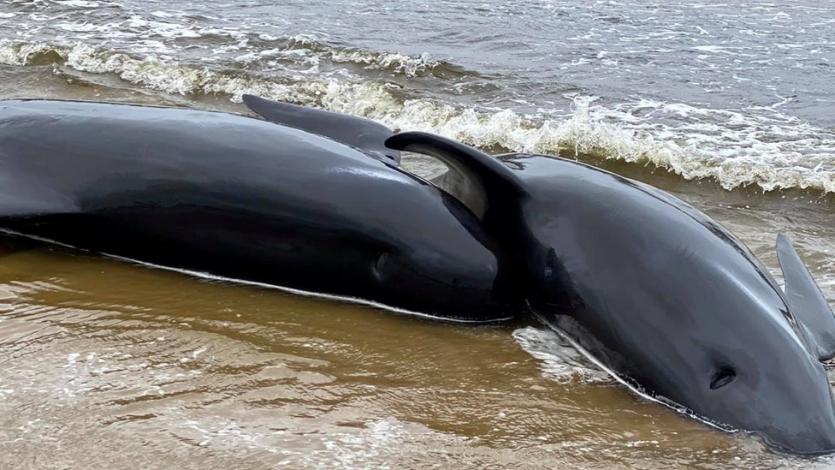The pilot whales have become stranded on Tasmania's west coast. Photo:Reuters
A record 380 whales dead after becoming stranded on Australia’s shores
By Patryk Krych | The World Daily | SEPTEMBER 23rd 2020
Officials have confirmed the deaths of over 380 long-finned pilot whales on the shores of the Australian state of Tasmania, in what’s being suspected to be Australia's largest stranding on record, as well as an immeasurable tragedy.
270 whales were counted on Monday, until rescuers spotted another 200 South of the Tasmanian beach, eventually bringing the death toll up. The total number of beached whales is thought to be around 480.
50 of the stranded whales were successfully rescued by authorities on Wednesday, in an area called Fraser Flats, after a long and difficult struggle in the shores’ freezing waters and dimming lights. This has been the single largest beaching incident the all of Australia’s recorded history. 380 of the whales were confirmed dead after a two-day fight to get them back out into the waters.
“As time goes on, they do become fatigued and their chance of survival reduces,” said a Tasmania Parks and Wildlife Service Manager and incident controller, Nic Deka. “We do expect to rescue more but increasingly our focus is what do with the carcasses.”
30 living whales are still stranded, and the rescuers who worked on freeing the other 50 were already struggling after working all night under the gruelling conditions, near the fairly isolated town of Strahan.
Deka added that more beached whales were seen about 10km (6 miles) South of the ones that’d already been stranded in Fraser Flats, numbering around 200. They were thought to have appeared at around the same time as the first batch, though had gone on undetected. Crews are to be dispatched by boat, in order to judge whether or not anything can be done for them. “From the air, they didn't look to be in a condition that would warrant rescue,” Deka said. “Most of them appeared to be dead.”
The rescue of whales largely depends on the amount of manpower at hand, the number of volunteers and rescuers available. When whales are beached in far more isolated positions, it becomes increasingly difficult to help rescue them all. Deka added that the focus is shifting to the removal of the carcasses from the beaches, a plan that is still seeing some work.
Deka spoke with The Guardian Australia, and stated that the best method of getting rid of the carcasses was still being put to consideration. He stated that on option was to bury them in landfills, and another was to try and tow them back into the oceans. “We do know we can’t leave them in the harbour because they will present a range of issues,” Deka said. “We are committed to retrieving and disposing.”






